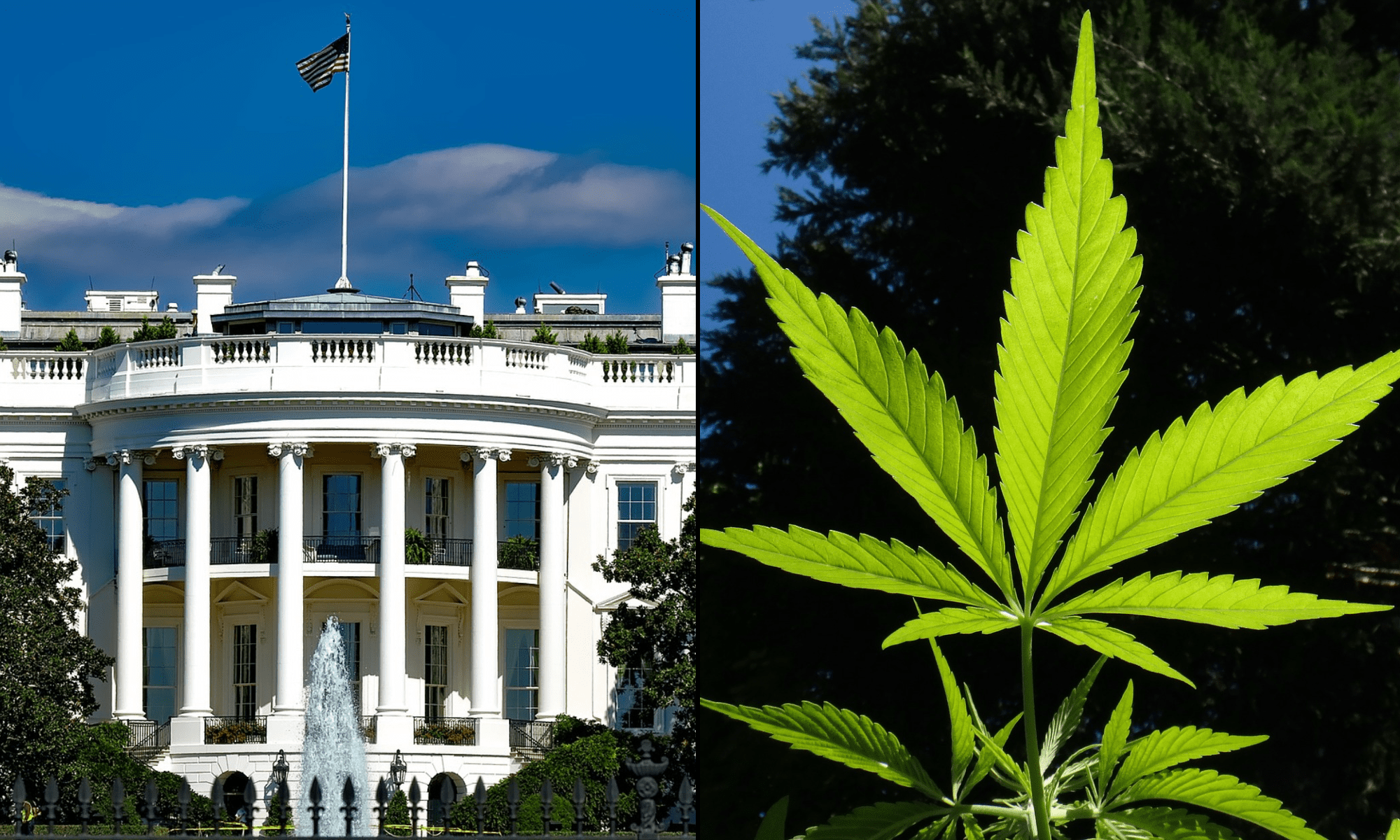Politics
Coalition Of Justice Groups Pushes Biden To Support Marijuana Legalization Instead Of Schedule III Move

In a new letter to the White House, a group of 20 justice and drug reform advocacy organizations are calling on President Joe Biden and Vice President Kamala Harris to publicly support the removal of marijuana from the federal Controlled Substances Act (CSA) rather than merely a move to Schedule III, as the government is currently considering.
Biden has said repeatedly during his campaign and term in office that “no one should be in jail merely for the use or possession of marijuana,” but advocates in the letter said that “only the descheduling of marijuana will truly decriminalize it at the federal level.”
To fulfill his campaign pledge to decriminalize, the letter from the Marijuana Justice Coalition (MJC)—which includes drug reformers, justice organizations, immigrant rights groups and others—tells the president, “you must begin to explicitly support the descheduling of marijuana from the CSA.”
“It is incumbent upon you to call on Congress to pass descheduling legislation, such as the Senate-led Cannabis Administration and Opportunity Act (CAOA) and the House-led Marijuana Opportunity, Reinvestment, and Expungement (MORE) Act,” it says. “Not only do these bills decriminalize marijuana through descheduling, they include your other campaign pledge on marijuana policy reform—automatic expungements—and establish programming for reinvestment in communities disproportionately targeted by marijuana criminalization.”
By contrast, a move to Schedule III “would maintain the federal criminalization of marijuana and most criminal penalties would remain unchanged.” Mandatory minimums would still apply, noncitizens would continue to face deportation over low-level cannabis crimes and patients, such as veterans, would continue to have to break the law to access state-legal medical marijuana, MJC said.
“Your administration has the opportunity to finally have federal marijuana policy catch up to public opinion and the state legal landscape that is increasingly rejecting marijuana criminalization,” the coalition wrote. “Pardons for simple possession cases are a good first step but as Vice President Harris recently said at the March 15, 2024 Roundtable Conversation about Marijuana Reform, ‘there is still much more to do.'”
Harris also said at the time that “we need to legalize marijuana”—but those remarks were made behind closed doors after the press had already been asked to leave the room.
Biden, meanwhile, both as a presidential candidate and while in office, has vocally supported limited cannabis reforms and taken concrete steps to review marijuana laws and forgive Americans with past convictions for minor cannabis crimes. But he’s also consistently overstated the impact of his actions, for example falsely claiming in this year’s State of the Union Address that his administration’s recent pardons around cannabis expunged “thousands of convictions.”
During the speech last month, a social media post from Biden’s office repeating that “no one should be jailed just for using or possessing marijuana” was by far his most popular of the night.
Biden has continued to tout the marijuana scheduling directive and cannabis pardons he’s issued, including in a presidential proclamation declaring April “Second Chance Month.”
As for the ongoing review process that could eventually move marijuana into Schedule III, the White House said this month it’s now up to the Justice Department to make a final decision on scheduling, adding that the Department of Health and Human Services (HHS) recommendation to reclassify cannabis was “guided by the evidence.”
The full list of signatories on the MJC letter include Better Opportunity to Win Legalization (BOWL), Center for American Progress, Clergy for a New Drug Policy, Doctors for Drug Policy Reform, Drug Policy Alliance, Immigrant Defense Project, Immigrant Legal Resource Center (ILRC), JustLeadershipUSA, Minorities for Medical Marijuana, National Association of Criminal Defense Lawyers, National Association of Social Workers, National Immigration Project, National Organization for the Reform of Marijuana Laws (NORML), Southern Poverty Law Center, Students for Sensible Drug Policy (SSDP), Sunita Jain Anti-Trafficking Initiative, Supernova Women, The Hood Incubator, Vera Institute of Justice and Veterans Cannabis Coalition.
While the Drug Enforcement Administration (DEA) has not given a clear sense of timing for when it will complete and submit its cannabis review, there are heightened expectations that it will come before November’s national elections—both because of past precedent in scheduling matters and because the Biden administration has become increasingly vocal about its role in facilitating the review.
The head of the Food and Drug Administration (FDA) under HHS told congressional lawmakers last week that there’s “no reason” for DEA to “delay” making a marijuana scheduling decision.
A DEA official noted recently that it sometimes takes up to six months for DEA to complete its analysis of health officials’ scheduling recommendations—which is about how long it’s now been since the agency began its current cannabis assessment.
Meanwhile, HHS Secretary Xavier Becerra last month defended his agency’s rescheduling recommendation during a Senate committee hearing and also told cannabis lobbyist Don Murphy that he should pay DEA a visit and “knock on their door” for answers about the timing of their decision.
Certain DEA officials are reportedly resisting the Biden administration’s rescheduling push, disputing the HHS findings on marijuana’s safety profile and medical potential, according to unnamed sources who spoke with The Wall Street Journal.
Read the full MJC letter to the Biden administration urging marijuana’s removal from the CSA:
















